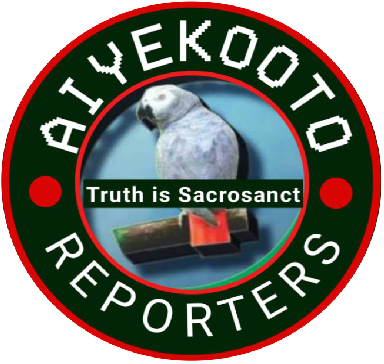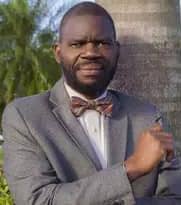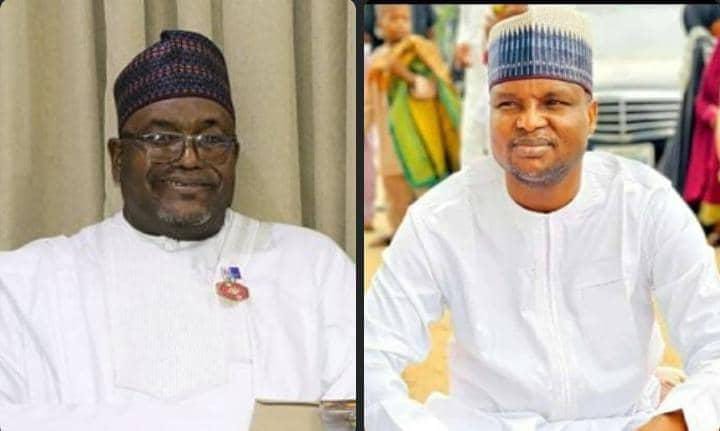Afe Babalola, you know the judiciary in Nigeria is compromised. You’ve seen it all—the bribes, the pressures, the rulings dictated by influence. Judges in Ekiti, like in most parts of Nigeria, often act under duress, fearing the repercussions of defying powerful figures like you. You know this, and yet you allowed Farotimi to be locked up in this system. What does this achieve? What is the point of having a magistrate remand him when the system itself is so riddled with flaws? Is this the justice you want to be remembered for?
Afe Babalola, at 95 years old, your name carries immense weight in Nigeria. You are a Senior Advocate of Nigeria (SAN), a legal titan, and a celebrated builder of institutions. You have lived a life many could only dream of—a career that began in the 1960s, when you returned from London armed with degrees and a calling to shape Nigeria’s legal landscape. Your influence spans decades, reaching your birthplace, Ado Ekiti, where you are not just a son but a kingmaker. But now, at the twilight of your life, you have allowed anger, ego, and a thirst for vengeance to taint the legacy you spent in a lifetime building. Good God, Afe Babalola—at 95, what are you doing?
Farotimi and the Unchecked Wrath of Your Ego
Dele Farotimi, a human rights lawyer and fearless critic, dared to write something that bruised your pride. In his book, Nigeria and Its Criminal Justice System, he accused you of influencing the judiciary—words that clearly struck a nerve. Yes, defamation can sting; it challenges how others perceive you. But Babalola, was this how you chose to respond? By unleashing AK-47-wielding police officers to storm his legal office, abduct him like a fugitive, drag him across state lines to Ekiti—your birthplace and sphere of influence—and lock him in prison?
This wasn’t a pursuit of justice; this was rage, unchecked and weaponized. At 95, instead of offering a dignified rebuttal or seeking redress through lawful civil processes, you turned to brute force and intimidation. Babalola, are you proud of this road you’ve taken—a road paved not with law and reason, but with power and vengeance? Does this bring you peace, or does it simply reveal the fragility of a legacy built on influence but now shaken by a single book?
This is not the justice you spent decades advocating for. This is not the Afe Babalola who established institutions to educate the next generation. This is not the legacy of a man who became a beacon of excellence in the legal profession. This is something else entirely—an act of revenge, a misuse of influence, and a display of unchecked power. At 95, is this the story you want to be told about you? That you used the police, the judiciary, and your immense sway in Ekiti to crush a man who dared to say something that offended you?
Your Place of Birth and Influence: A Stage for Intimidation
Ekiti State, your birthplace, carries a legacy intertwined with your name. Ado Ekiti is more than a town; it is the foundation of your life’s story, a place shaped by your influence. Yet, like so many parts of Nigeria, it is not immune to whispers of judicial compromise—where magistrates often face undue pressure, judges tread carefully under the shadow of reprisal, and the decisions rendered sometimes reflect the weight of power more than the rule of law. It is within this complex and fragile system that Dele Farotimi now finds himself, facing circumstances that call into question the very principles of justice and fairness.
Farotimi was hauled into an Ekiti magistrate court and denied bail in a state where your word carries the force of law. A man locked in a cell not because he committed a heinous crime, but because he wrote words that angered you. Good God, Babalola, think about the pain you are inflicting on this man—not just the physical pain of imprisonment, but the mental torment of being victimized by a system you so thoroughly dominate. Is this what you want for your birthplace? For Ekiti to be remembered not as the home of a great legal mind but as a place where the powerful crush dissent?
What Will You Tell the Next Generation?
You are a teacher, a builder, and a mentor to countless lawyers. What will you tell them about this chapter of your life? That you used your immense legal knowledge to teach the importance of justice, or that you used your influence to exact revenge? What do you want young lawyers to learn from this? That defamation, an emotional wound, justifies weaponizing the police and judiciary? That the power you’ve built over a lifetime is best spent silencing critics rather than uplifting the law?
At 95, you are closer to meeting your Creator than most of us. When that time comes, what will you say to Him? That you allowed your anger to overshadow your achievements? That you used the police not as enforcers of justice but as tools of intimidation? That you let ego, not wisdom, guide your final years?
Farotimi’s Pain: What Have You Done?
Dele Farotimi’s arrest has not silenced him. It has amplified his voice. The pain you have inflicted on this man—dragging him from his legal office, imprisoning him in Ekiti, forcing him to endure a system that you know is broken—has not made you stronger. It has exposed the very abuses he speaks of. Farotimi has long said that the powerful in Nigeria use the police and judiciary to serve their interests, and here you are, proving him right.
What satisfaction have you gained from this? A fleeting sense of power? A temporary quelling of your wounded ego? Or are you simply consumed by anger, unable to see the damage you are doing—not to Farotimi, but to yourself, your legacy, and the place you call home?
A Judiciary Under Pressure, a Police Force Without Direction
Babalola, you know the judiciary in Nigeria is compromised. You’ve seen it all—the bribes, the pressures, the rulings dictated by influence. Judges in Ekiti, like in most parts of Nigeria, often act under duress, fearing the repercussions of defying powerful figures like you. You know this, and yet you allowed Farotimi to be locked up in this system. What does this achieve? What is the point of having a magistrate remand him when the system itself is so riddled with flaws? Is this the justice you want to be remembered for?
And the police—those who stormed Farotimi’s office with rifles, as though they were capturing a dangerous criminal—what message does this send to the world? That in Nigeria, a man can be treated like a fugitive for words he wrote in a book? That the police exist not to protect citizens but to serve the anger of the elite? Babalola, this is the system you have chosen to align yourself with. This is the system you now represent.
Afe Babalola’s Painful Choices—Will the Nightmares Ever End?
Here you are, going to sleep tonight with Dele Farotimi locked up in prison, awaiting his next hearing on December 10, as ordered by Magistrate Abayomi Adeosun. For defamation—a matter long recognized as civil—and with the police attempting to justify their actions under the pretext of cybercrime, this charade is nothing short of tragic. Cybercrime, a convenient catch-all accusation in Nigeria’s legal landscape, was introduced here as a desperate attempt to add weight to a case that should never have escalated beyond civil litigation.
How do you reconcile this with your legacy, built over decades of legal excellence? Will the nights ahead be haunted by dreams of him, locked behind bars because of your wounded ego—a 95-year-old man with a name revered across Nigeria, now risking it all in an act of power-driven vengeance?
What justice is there in using your influence to imprison a man for words? Your legacy deserved better, but now it will carry the weight of this moment—a moment where wisdom gave way to anger, and power overshadowed fairness. Will these decisions let you sleep in peace, or will they leave you questioning the choices that have brought you here?
Afe Babalola: Fighting Words with Guns—Is This the Legacy You Want?
No matter the AK-47s or the heavy-handed tactics, at the core of this spectacle lies a wounded ego, Babalola. Farotimi’s 2024 book, Nigeria and Its Criminal Justice System, questioned your legacy with allegations that you influenced Supreme Court judgments for your clients, casting shadows over the judiciary’s integrity. Instead of meeting these words with truth, debate, or the dignity expected of a man of your stature, you chose a path of force—arming the police to silence a critic. Babalola, do you truly believe this brutal display of power will restore your name, or does it reveal a deeper fear of the very words that challenge your legacy? At 95, is this what your decades of excellence have come to—a battle against words with guns?
Turning Farotimi’s Book Into a Symbol of Resistance
Oh Babalola, in your fit of emotional outrage and abuse of power, you have achieved the very opposite of what you intended. By targeting Dele Farotimi, a human rights lawyer, you have turned him into a symbol of defiance against oppression. His book, Nigeria and Its Criminal Justice System, once an underappreciated critique of systemic corruption, is now a sensation. Thousands are Googling it, publishers are overwhelmed with orders, and now, more than ever, they will know the rot you sought to bury.
The words you tried to silence are echoing louder than ever, exposing the very system you are a part of. Afe, your actions amplified his truth, and this is what you get—turning a critic into a hero and your legacy into a cautionary tale of ego and misused power.
What Will You Tell God?
At 95, you have seen more of life than most. You have achieved what many can only dream of. But in these final years, what will you tell God when you meet Him? That you used your influence to lock up a man who challenged you? That your anger over words in a book drove you to misuse the very institutions you once upheld? That the power you spent a lifetime building was ultimately spent silencing dissent? Babalola, is this how you want to go out of this life?
A Civil Matter Turned Cruel—Why Has Justice Been Forsaken?
Babalola, this is the painful ending you have chosen for yourself at 95. A legacy built on decades of legal excellence and national respect now overshadowed by an act of vengeance. Dele Farotimi, a human rights lawyer, sits locked in a Nigerian prison—a place of overcrowded cells, no sanitation, and unimaginable suffering—all for words he wrote in a book. Words.
Defamation, firmly rooted in civil law, should never have spiraled into this grim spectacle. Criminal defamation, long abolished in Lagos and dismissed by modern legal standards, has no place here. And even if it did, the principles of bail and humane treatment demand fairness. Yet here we are, with a man stripped of his freedom, dragged from Lagos to Ekiti, and left to endure conditions that break the human spirit.
This was never about justice. It’s about a chilling message—not just to Farotimi but to anyone who dares to speak truth to power. Why, in a matter so clearly civil, must the punishment be so brutal and disproportionate? Even if the system could somehow justify these charges, why take a route so steeped in cruelty and ego-driven vengeance? Why allow your towering legacy to be tarnished by actions that defy compassion, fairness, and wisdom?
A Legacy at Risk: Your Final Chapter Is Being Written
Babalola, your legacy, built over decades, is being rewritten—not by your achievements but by this act of anger. It is no longer about the institutions you built or the respect you earned. It is about this moment, a moment where your choices have overshadowed everything else. Farotimi’s imprisonment is not just a story about him; it is a story about you, your choices, and the path you have taken in the twilight of your life.
At 95, you stand at a crossroads. Will this be the final chapter history remembers—a man who lets ego and wounded pride define his legacy? Or will you step back, release Farotimi, and allow wisdom to guide your final years?
The world is watching, and history will not be forgotten. Good God, Babalola—at 95, is this really how it ends?
Professor John Egbeazien Oshodi, born in Uromi, Edo State, Nigeria, is an American-based police and prison scientist, forensic/clinical psychologist, public policy psychologist, and legal psychologist. He’s a government advisor on forensic-clinical psychological services in the USA and the founder of the Dr. John Egbeazien Oshodi Foundation for Psychological Health. With a significant role in introducing forensic psychology to Nigeria through N.U.C. and Nasarawa State University, he’s also a former Secretary-General of the Nigeria Psychological Association. He’s taught at esteemed institutions like Florida Memorial University, Florida International University, Nova Southeastern University, and more, and is currently an online faculty member at ISCOM University, Weldios University and Walden University








